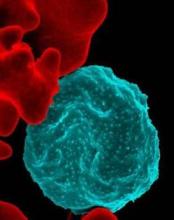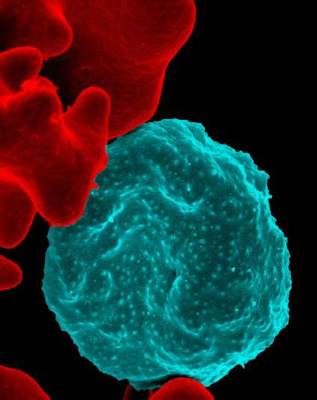User login
Forms of Plasmodium falciparum parasites successfully infected various species of mosquitoes, including the major African vector for malaria, a study revealed.
The parasites, which are resistant to the antimalarial drug artemisinin, have rapidly spread in Cambodia and other Greater Mekong Subregion countries.
In patients and in vitro, the researchers produced gametocytes from clinical isolates of Plasmodium falciparum, the deadliest species of malaria parasites. The researchers then infected Anopheles mosquito vectors from Southeast Asia and Africa with the gametocytes.
The parasite isolates developed and produced sporozoites in the Southeast Asian vectors, An. dirus and An. minimus, and the major African vector, An. coluzzii.
“Our finding that highly differentiated ART-resistant parasites infect highly diverse Anopheles species unveils a significant unanticipated challenge to the elimination of malaria in Southeast Asia and the prevention of [artemisinin-resistant] malaria in Africa,” said Dr. Brandyce St. Laurent of the National Institute of Allergy and Infectious Diseases and her coauthors.
“The researchers plan to investigate other potential genetic determinants of parasite infection of mosquitoes and further examine which Anopheles species from Cambodia are naturally transmitting artemisinin-resistant parasites in the wild,” according to a written statement from the NIH.
The authors declared no competing financial interests.
Read the full study in Nature Communications (2015;6:8614).
Forms of Plasmodium falciparum parasites successfully infected various species of mosquitoes, including the major African vector for malaria, a study revealed.
The parasites, which are resistant to the antimalarial drug artemisinin, have rapidly spread in Cambodia and other Greater Mekong Subregion countries.
In patients and in vitro, the researchers produced gametocytes from clinical isolates of Plasmodium falciparum, the deadliest species of malaria parasites. The researchers then infected Anopheles mosquito vectors from Southeast Asia and Africa with the gametocytes.
The parasite isolates developed and produced sporozoites in the Southeast Asian vectors, An. dirus and An. minimus, and the major African vector, An. coluzzii.
“Our finding that highly differentiated ART-resistant parasites infect highly diverse Anopheles species unveils a significant unanticipated challenge to the elimination of malaria in Southeast Asia and the prevention of [artemisinin-resistant] malaria in Africa,” said Dr. Brandyce St. Laurent of the National Institute of Allergy and Infectious Diseases and her coauthors.
“The researchers plan to investigate other potential genetic determinants of parasite infection of mosquitoes and further examine which Anopheles species from Cambodia are naturally transmitting artemisinin-resistant parasites in the wild,” according to a written statement from the NIH.
The authors declared no competing financial interests.
Read the full study in Nature Communications (2015;6:8614).
Forms of Plasmodium falciparum parasites successfully infected various species of mosquitoes, including the major African vector for malaria, a study revealed.
The parasites, which are resistant to the antimalarial drug artemisinin, have rapidly spread in Cambodia and other Greater Mekong Subregion countries.
In patients and in vitro, the researchers produced gametocytes from clinical isolates of Plasmodium falciparum, the deadliest species of malaria parasites. The researchers then infected Anopheles mosquito vectors from Southeast Asia and Africa with the gametocytes.
The parasite isolates developed and produced sporozoites in the Southeast Asian vectors, An. dirus and An. minimus, and the major African vector, An. coluzzii.
“Our finding that highly differentiated ART-resistant parasites infect highly diverse Anopheles species unveils a significant unanticipated challenge to the elimination of malaria in Southeast Asia and the prevention of [artemisinin-resistant] malaria in Africa,” said Dr. Brandyce St. Laurent of the National Institute of Allergy and Infectious Diseases and her coauthors.
“The researchers plan to investigate other potential genetic determinants of parasite infection of mosquitoes and further examine which Anopheles species from Cambodia are naturally transmitting artemisinin-resistant parasites in the wild,” according to a written statement from the NIH.
The authors declared no competing financial interests.
Read the full study in Nature Communications (2015;6:8614).
FROM NATURE COMMUNICATIONS

